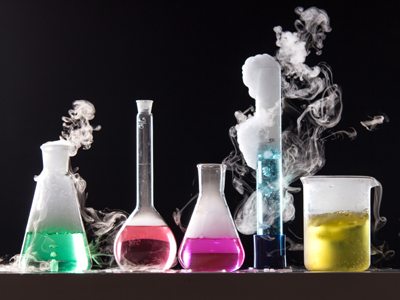
Rates of Reaction 1
Many factors affect rates of chemical reactions - pressure of gases, temperature, surface area of solids, concentration and if there is a catalyst. Anything that will change the probability of particles colliding or change the energy of the collisions will affect the rate of a reaction. This is the first of three GCSE Chemistry quizzes looking at these factors.
The rate of a reaction is a measure of how quickly a chemical reaction progresses. Some reactions can be very slow, for example rusting can take weeks or even years, whilst others, such as neutralisation or an explosion are over very rapidly. The rate of reaction is very important in industrial situations; take explosions for instance - these are incredibly fast reactions. An explosive is a solid that turns into a huge amount of very hot gas VERY quickly! This makes them useful for several purposes - most notably in warfare - though a more peaceful use is in the quarrying for resources.
Increase the energy the particles collide with
Increase the energy the particles collide with
Decrease the energy the particles collide with
Decrease the energy the particles collide with
Ready for more?
not all...
quizzers. Try to win a coveted spot on our Hall of Fame Page.







